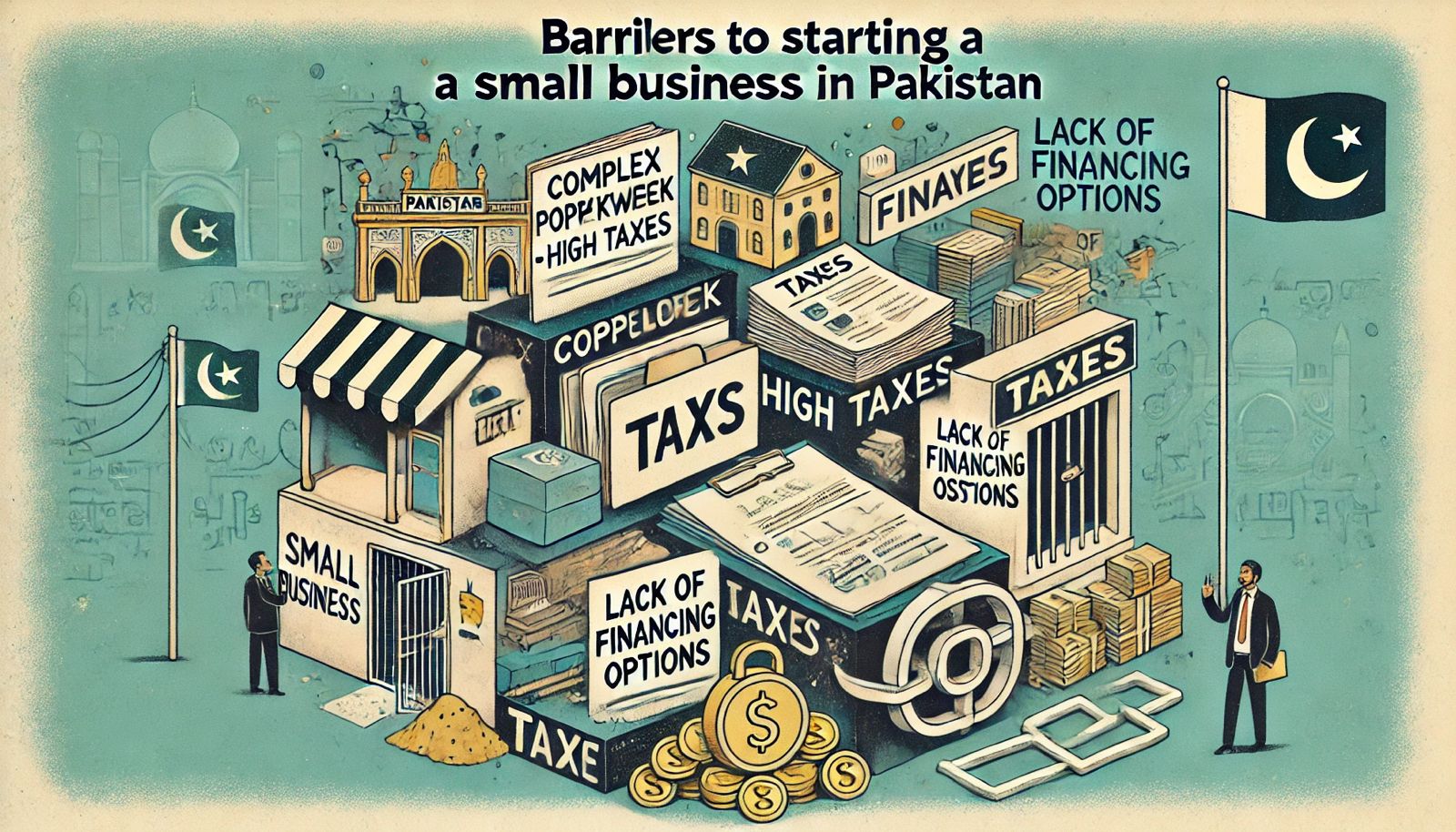Barriers to Starting a Small Business in Pakistan: Economic, Financial, Regulatory, and Other Challenges Faced Detailed analysis and solutions are provided
Introduction
Small businesses in Pakistan play an important role in the development of the country’s economy. They not only provide employment but also help in strengthening the economy. However, there are several hurdles to face in starting a small business in Pakistan. This article will take a detailed look at these obstacles and discuss their solutions.
Small Business Landscape in Pakistan
The scenario of small businesses in Pakistan is different. Current market trends show that small businesses are more popular in the food, textile, IT, and service sectors. Every type of business faces different challenges.
Economic Barriers
Economic constraints in Pakistan are a major obstacle to the development of small businesses. High inflation rates and currency depreciation increase the cost of doing business, making it difficult for small businesses to survive.
Financial Barriers
Financial constraints such as limited access to capital and high interest rates also hamper the growth of small businesses. It is difficult to get loans from banks and the availability of other financial resources is also limited.
Regulatory Barriers
Regulatory hurdles such as complex laws and bureaucratic hurdles also create difficulties for small businesses. Complicated licensing and registration processes also lead to delays in business startups.
Infrastructure Barriers
Poor infrastructure and energy shortages in Pakistan are also barriers to small businesses. Poor condition of roads and substandard power supply affect business operations.
Technological Barriers
Limited access to modern technology and high adoption costs also hinder the growth of small businesses. Small businesses find it difficult to use modern technology.
Market Access Barriers
Limited market access and high competition also become challenges for small businesses. Small businesses find it difficult to break into large markets.
Cultural and Social Barriers
Social attitudes and cultural barriers also play an important role in business development. Negative attitudes towards entrepreneurs and gender biases can hinder the growth of small businesses.
Educational Barriers
Educational barriers such as lack of business education and lack of skills also hamper the growth of small businesses. Educational institutions fail to provide business education.
Legal Barriers
Legal barriers such as legal complications and intellectual property issues can also hamper the growth of small businesses.
Taxation Barriers
High tax rates and complicated tax systems also create difficulties for small businesses. Complications in tax payment and high taxes increase the cost of doing business.
Support System Barriers
Lack of government support and non-availability of mentoring programs also hinder the growth of small businesses. Entrepreneurs do not get proper guidance and support.
Networking Barriers
Lack of networking opportunities and limited access to business associations can also hinder the growth of small businesses.
Psychological Barriers
Fear of failure and risk aversion can also hinder the growth of small businesses. Entrepreneurs fear failure and shy away from taking risks.
And now we do business talks on what are the possible solutions to all these problems
Success Stories
Stories of successful small businesses and lessons learned from them also provide guidance for entrepreneurs.
Government Initiatives
The existing policies and proposed initiatives of the government can also play an important role in the development of small businesses.
Solutions and Recommendations
Barriers to small businesses can be reduced through policy recommendations and business support programs.
Conclusion
Today we have examined various obstacles in the way of small businesses and discussed their possible solutions. Better opportunities for small businesses can be expected in the future.









Recent Comments